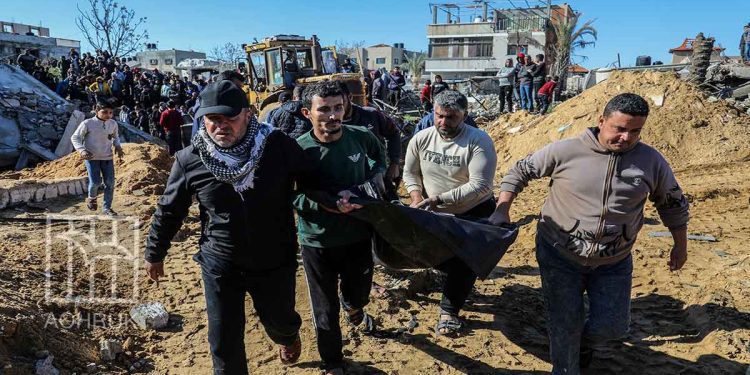The United Nations has announced the killing of 830 Palestinians in the Gaza Strip, including 174 women and 322 children, between 18 and 25 March, in addition to 1,787 others injured.
These figures were presented in a press conference by Maryse Guimond, the UN Women’s Special Representative in Palestine, who highlighted the “catastrophic impact on women and girls in Gaza” due to the ongoing aggression and the collapse of the tenuous ceasefire.
This is not collateral damage; this is a war where women and children bear the highest burden. They comprise nearly 60 per cent of the recent casualties, a harrowing testament to the indiscriminate nature of this violence.
Guimond stressed that “this is not collateral damage”, but a direct targeting of the most vulnerable groups. She noted that approximately 60 per cent of the victims are women and children.
She described the statistics as a harrowing testimony to the indiscriminate nature of the violence inflicted by the occupation against civilians in the territory.
Since the resumption of the occupation’s genocidal war on Gaza on 7 October 2023, the death toll has risen to 896, with 1,984 wounded, most of whom are women and children, according to the Palestinian Ministry of Health.
This escalation marks the most significant breach of the ceasefire agreement that began on 19 January, as the occupation authorities refused to implement the second phase of the deal after the first phase concluded in early March.
Despite repeated international calls to halt the aggression, the occupation, with unwavering US support, continues to commit acts of genocide in Gaza. Since 7 October 2023, these attacks have resulted in the killing of over 164,000 Palestinian, with more than 14,000 missing persons, while widespread destruction has devastated every aspect of life in the Strip.
As these massacres continue, the suffering of Gaza’s residents worsens. They face dire humanitarian conditions, with severe shortages of food and medicine, systematic destruction of infrastructure, and international silence that exacerbates the crisis, encouraging the occupation to continue its aggressive policies unchecked.


























